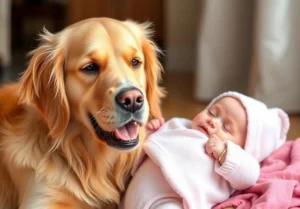Cats are beloved pets known for their grace, independence, and sometimes aloof demeanor. However, one aspect of their care that can cause concern for cat owners is the loss of their teeth. Why do cats lose their teeth? Let’s explore the reasons behind this common occurrence and what you can do to support your feline friend throughout the process.
Cats, like humans, go through a natural process of losing their baby teeth and replacing them with adult teeth. This process typically occurs during their first few months of life. As they age, however, cats can also experience tooth loss for various reasons, including dental disease, injury, or other health issues. Understanding why cats lose their teeth is essential for ensuring their overall well-being and quality of life.
Signs of Tooth Loss in Cats
As cat owners, it’s important to be vigilant about any signs that may indicate your feline friend is experiencing tooth loss. One common sign is drooling, which can occur if a tooth becomes loose or infected. Difficulty eating or favoring one side of the mouth while chewing are also indicators that something may be amiss with your cat’s teeth. Bad breath, also known as halitosis, can be a sign of dental issues such as gum disease or tooth decay. Blood in your cat’s saliva or on their toys can also be a red flag for tooth loss and should prompt a visit to the veterinarian.
Common Causes of Tooth Loss in Cats
There are several reasons why cats may lose their teeth. Dental issues such as periodontal disease and tooth resorption can lead to tooth loss if left untreated. Injuries, such as a fall or a car accident, can also result in broken or lost teeth. Age-related factors play a role as well, with older cats being more prone to dental problems that may ultimately lead to tooth loss. Regular dental check-ups and proper oral hygiene can help prevent these issues and ensure that your cat maintains a healthy smile throughout their life.
Bonus Tip: Providing your cat with dental treats or toys specifically designed to promote dental health can help reduce the risk of tooth loss and keep their teeth strong and healthy.
Dental Care for Cats
Did you know that proper dental care is essential for your feline friend to keep those teeth intact? Just like humans, cats can experience tooth loss if their oral hygiene is neglected. To prevent this from happening, make sure to brush your cat’s teeth regularly using a pet-friendly toothbrush and toothpaste. Additionally, providing dental treats or toys can help keep their teeth clean and healthy. Remember, a little effort in dental care goes a long way in ensuring your cat keeps their pearly whites.
Medical Conditions Related to Tooth Loss
While dental care plays a significant role in preventing tooth loss in cats, certain medical conditions can also be contributing factors. Conditions such as periodontal disease, stomatitis, or tooth resorption can lead to tooth loss in cats. If you notice your cat showing signs of oral discomfort, such as drooling, bad breath, or reluctance to eat, it’s crucial to consult with your veterinarian. They can diagnose any underlying medical conditions and recommend appropriate treatment options to help your cat maintain their dental health.
- Regular veterinary check-ups are essential to monitor your cat’s oral health and address any potential issues early on.
- Providing a balanced diet and avoiding feeding your cat foods that are too hard can help prevent dental problems.
- If your cat is prone to dental issues, consider specially formulated dental diets or treats recommended by your veterinarian for additional preventive care.
Remember, keeping an eye on your furry friend’s dental health and addressing any concerns promptly can help prevent tooth loss and ensure they maintain a happy and healthy smile.
Healthy Diet for Dental Health
A cat’s diet plays a crucial role in its dental health. Feeding your feline friend a balanced diet that includes high-quality cat food can help prevent tooth loss. Look for foods that are specifically formulated to promote dental health, such as those that help reduce plaque and tartar buildup. Additionally, providing chew toys or treats designed to improve dental hygiene can also contribute to keeping your cat’s teeth healthy and strong.
Dental Tip:
When choosing cat food, opt for varieties with added nutrients like vitamins C and D that promote dental health. You can also consult your veterinarian for recommendations on the best food options for your cat’s teeth.
Vet Visits for Dental Check-ups
Regular veterinary check-ups are essential for maintaining your cat’s dental health and preventing tooth loss. Dental issues can often go unnoticed by pet owners, so having your cat’s teeth professionally examined on a regular basis is crucial. Veterinarians can identify early signs of dental problems such as gum disease or tooth decay, and provide treatment to prevent tooth loss.
Dental Tip:
Make sure to schedule annual dental check-ups for your cat to catch any dental issues early. Brushing your cat’s teeth at home can also help prevent tooth loss and maintain good oral hygiene. Check out this helpful resource for more information on dental care for your pet.
Behavioral Changes Due to Tooth Loss
When cats experience tooth loss, it can significantly impact their behavior and overall quality of life. Tooth loss can lead to difficulty eating, causing weight loss and nutritional deficiencies. Cats may also experience pain and discomfort, leading to changes in their eating habits and reluctance to groom themselves properly.
As a result of tooth loss, cats may become more irritable and less active than usual. They may also start avoiding certain types of food or displaying aggression when approached near their mouth area. Some cats may even develop bad breath due to the bacteria buildup in their mouth resulting from tooth loss.
To support your feline friend during this time, it’s essential to provide soft or wet food that is easier for them to chew. Regular veterinary check-ups are crucial to monitor the progression of tooth loss and address any underlying issues. Additionally, offering toys or treats that promote dental health can help maintain your cat’s oral hygiene.
Alternative Treatments for Tooth Loss
In cases where tooth loss is severe or causing significant discomfort, there are various treatment options available to help improve your cat’s quality of life. Dental surgeries such as extractions or root canals may be necessary to address advanced tooth decay or infection.
Another alternative treatment for tooth loss in cats is the use of dental implants. These implants can help restore your cat’s ability to chew and maintain proper oral health. However, this option may not be suitable for all cats, so it’s essential to consult with your veterinarian to determine the best course of action.
In addition to surgical interventions, incorporating dental care products such as toothbrushes, dental chews, and oral rinses into your cat’s routine can help prevent future tooth loss and maintain their overall dental health. Regular dental cleanings by a professional veterinarian are also crucial in preventing dental issues that can lead to tooth loss in the future.
Tip: Providing your cat with regular dental check-ups and proper oral hygiene care can help prevent tooth loss and ensure your feline companion leads a happy and healthy life.
Fun Facts About Cat Teeth
Cat teeth are truly fascinating and play a crucial role in your feline friend’s overall health and well-being. Did you know that adult cats have 30 teeth, while kittens have around 26 temporary teeth that eventually fall out as they mature? This process, known as teething, is essential for cats to develop their adult set of teeth.
Another interesting fact is that cats are obligate carnivores, meaning their teeth are designed for tearing and shearing meat. Their sharp, pointed teeth are perfect for grasping and chewing raw meat effectively. This natural design showcases how perfectly adapted cats are for hunting and eating prey in the wild.
One unique aspect of cat teeth is that they are prone to dental issues like tartar buildup and gingivitis. Regular dental care for your cat, including brushing their teeth and providing dental treats or toys, can help prevent these common dental problems.
Overall, understanding the importance of cat teeth and taking care of your feline friend’s oral health can go a long way in ensuring they lead a happy and healthy life.
- Cats have a specialized tooth called the carnassial tooth, which is used for shearing meat and is crucial for their ability to tear apart their prey.
- Just like humans, cats can experience tooth decay and cavities if their teeth are not properly cared for.
Remember, caring for your cat’s teeth is an essential part of their overall wellness, so be sure to prioritize their dental health in your pet care routine.
Alex, a passionate animal lover, has experience in training and understanding animal behavior. As a proud pet parent to two dogs and three cats, he founded AnimalReport.net to share insights from animal experts and expand his knowledge of the animal kingdom.




